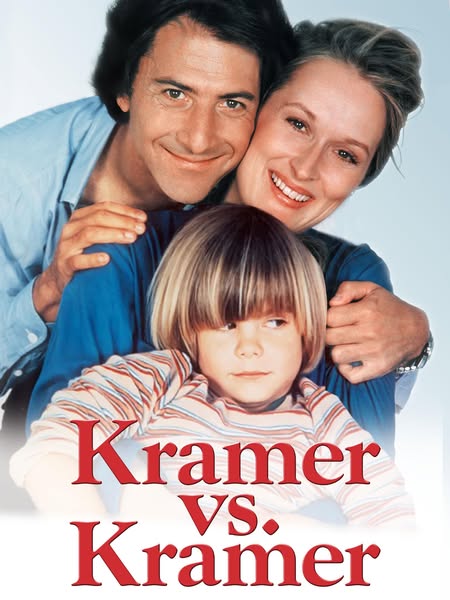Kramer vs. Kramer (1979)

Kramer vs. Kramer is a 1979 drama film directed by Robert Benton, based on the novel by Avery Corman. The film stars Dustin Hoffman and Meryl Streep, and it explores themes of family, divorce, and the struggles of single parenthood.
The story follows Ted Kramer (Hoffman), a driven advertising executive who is focused on his career and initially neglects his family. When his wife, Joanna (Streep), unexpectedly leaves him and their young son, Billy (Justin Henry), Ted is forced to confront his responsibilities as a father. The film poignantly depicts Ted’s journey as he learns to balance work and parenting while navigating the challenges of single fatherhood.

As Ted grows closer to Billy, he becomes more aware of the emotional needs of his son and begins to change his priorities. The film captures the father-son bond developing amidst the backdrop of Ted’s struggle to prove himself as a capable parent.
Joanna’s return to seek custody of Billy introduces a conflict that raises questions about parenting, gender roles, and the nature of family. The custody battle highlights the emotional turmoil experienced by all parties involved, showcasing the complexities of love and responsibility.

Dustin Hoffman delivers a powerful performance, portraying Ted’s transformation from a self-centered professional to a devoted father. Meryl Streep shines as Joanna, bringing depth to her character’s struggles and motivations. The film also features a strong supporting performance by Justin Henry, whose portrayal of Billy is both touching and authentic.
Kramer vs. Kramer received critical acclaim upon its release, winning five Academy Awards, including Best Picture, Best Director for Benton, Best Actor for Hoffman, and Best Supporting Actress for Streep. The film is often praised for its realistic portrayal of divorce and its impact on families, resonating with audiences and critics alike.

In conclusion, Kramer vs. Kramer is a poignant exploration of love, sacrifice, and the challenges of parenthood. With its compelling performances and sensitive storytelling, the film remains a significant work in American cinema, inviting viewers to reflect on the complexities of family dynamics and the evolving roles of parents.











